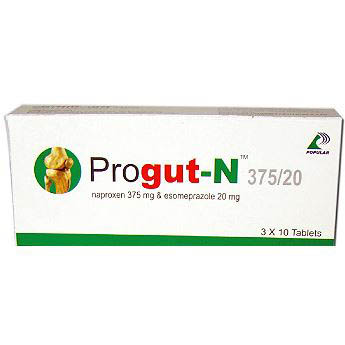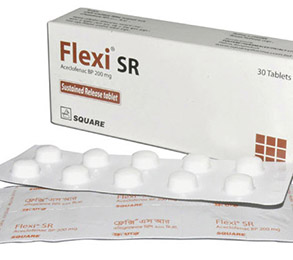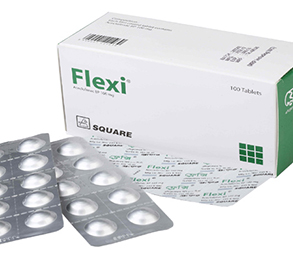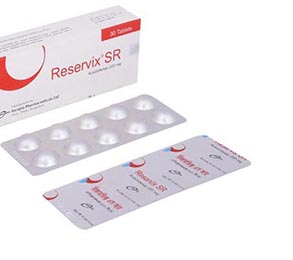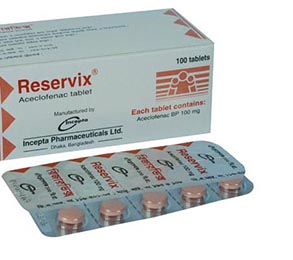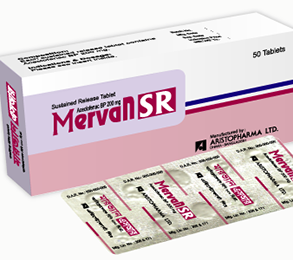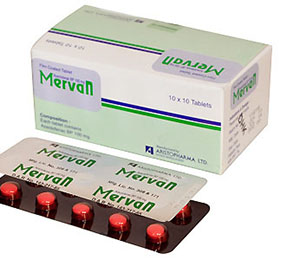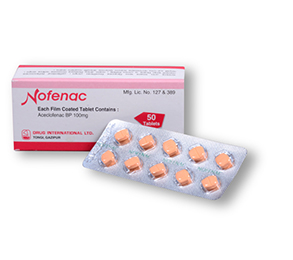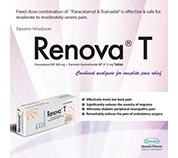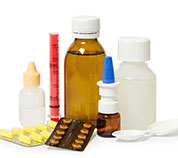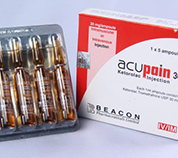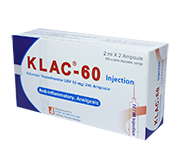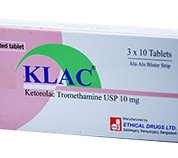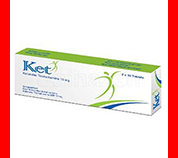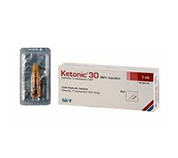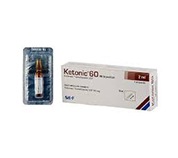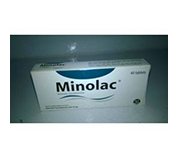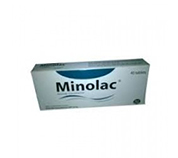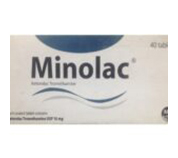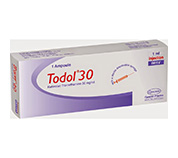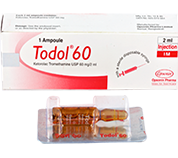Progut-N Tablet 375 mg+20 mg 10 Pc
Alternative products
Naproxen Sodium + Esomeprazole
Indications
Naproxen & Esomeprazole is indicated for the relief of signs & symptoms of-
- Osteoarthritis
- Rheumatoid arthritis
- Ankylosing spondylitis &
- To decrease the risk of developing gastric ulcers in patients at risk of developing NSAID-associated gastric ulcers.
Pharmacology
This consists of an immediate release Esomeprazole Magnesium layer & an enteric-coated Naproxen core. As a result, Esomeprazole is released first into the stomach, prior to the dissolution of Naproxen in the small intestine.
Naproxen is a NSAID with analgesic & antipyretic properties. The mechanism of action of Naproxen is to inhibit the prostaglandin synthesis. Esomeprazole is a proton pump inhibitor that suppresses gastric acid secretion by specific inhibition of the H+/k+ -ATPase in the gastric parietal cell by acting specifically on the proton pump, Esomeprazole blocks the final step in acid production, thus reducing gastric acidity.
Dosage
Carefully consider the potential benefits & risks of this tablet & other treatment options before deciding to use this tablet. Use the lowest effective dose for the shortest duration consistent with individual patient treatment goals. If a dose of Esomeprazole lower than a total daily dose of 40 mg is more appropriate, a different treatment should be considered.
Rheumatoid Arthritis, Osteoarthritis and Ankylosing Spondylitis-
- Adults: One tablet twice daily of either: 375 mg naproxen/20 mg of esomeprazole; or 500 mg naproxen/20 mg of esomeprazole
Juvenile Idiopathic Arthritis in Adolescent Patients 12 Years of Age & Older-
- Weight greater than 50 kg: 375 mg naproxen/20 mg of esomeprazole; or 500 mg naproxen/20 mg of esomeprazole
- Weight 38 kg to less than 50 kg: One tablet twice daily of 375 mg naproxen/20 mg of esomeprazole.
* চিকিৎসকের পরামর্শ মোতাবেক ঔষধ সেবন করুন'
Administration
Do not split, chew, crush or dissolve the tablet. This tablet is to be taken at least 30 minutes before meals.
* চিকিৎসকের পরামর্শ মোতাবেক ঔষধ সেবন করুন'
Interaction
With medicine:
- Concomitant use of NSAIDs may reduce the antihypertensive effect of ACE inhibitors, diuretics & beta-blockers
- Concomitant use of this tablet and warfarin may result in an increased risk of a bleeding complication.
- Esomeprazole inhibits gastric acid secretion & may interfere with the absorption of drugs where gastric pH is an important determinant of bioavailability (eg. Ketoconazole, iron salts and digoxin).
With food & others: Administration of Naproxen & Esomeprazole together with high-fat food in healthy volunteers does not affect the extent of absorption of naproxen but significantly prolongs tmax by 10 hours and decreases peak plasma concentration (Cmax) by about 12%
Contraindications
- Known hypersensitivity to any component of this tablet or substituted benzimidazoles.
- History of asthmay urticaria or other allergic-type reactions after taking aspirin or other NSAIDs.
- Use during the peri-operative period in the setting of coronary artery bypass graft (CABG) surgery.
Side Effects
In general, this preparation is well tolerated. The most common adverse reactions in clinical trials (>5%): erosive gastritis, dyspepsia, gastritis, diarrhea, gastric ulcer, upper abdominal pain, nausea etc.
Pregnancy & Lactation
Pregnancy category C. In late pregnancy, it should be avoided because it may cause premature closure of the ductus arteriosus. This tablet should not be used in nursing mothers due to the Naproxen component.
Precautions & Warnings
Patients with known CV disease/risk factors may be at greater risk. This tablet should be used with caution in patients with fluid retention or heart failure.
Use in Special Populations
Elderly patients: Studies indicate that although the total plasma concentration of naproxen is unchanged, the unbound plasma fraction of naproxen is increased in the elderly. Use caution when high doses are required & some adjustment of dosage may be required in elderly patients. As with other drugs used in the elderly use the lowest effective dose.
Patients with Moderate to Severe Renal impairment: Naproxen-containing products are not recommended for use in patients with moderate to severe or severe renal impairment (creatinine clearance <30 ml/min).
Hepatic insufficiency: Monitor patients with mild to moderate hepatic impairment closely & consider a possible dose reduction based on the Naproxen component of this tablet. This is not recommended in patients with severe hepatic impairment because Esomeprazole dosage should not exceed 20 mg daily in these patients.
Overdose Effects
There is no clinical data on overdosage with this tablet.
Overdose of Naproxen: Significant naproxen overdosage may be characterized by lethargy, drowsiness, epigastric pain, abdominal discomfort, heartburn, indigestion, nausea, transient alteration in liver function, hypoprothrombinemia, renal dysfunction, metabolic acidosis, apnea, vomiting etc.
Overdose of Esomeprazole: The major signs of acute toxicity were reduced motor activity, changes in respiratory frequency, tremor and intermittent clonic convulsions etc.
Therapeutic Class
Drugs for Osteoarthritis, Drugs used for Rheumatoid Arthritis, Non-steroidal Anti-inflammatory Drugs (NSAIDs)
Storage Conditions
Store at temperature of below 30°C, protect from light & moisture. Keep out of reach of children.
- Type Tablet
- Tag
- Morbi leo risus
- Porta ac consectetur ac
- Vestibulum at eros
